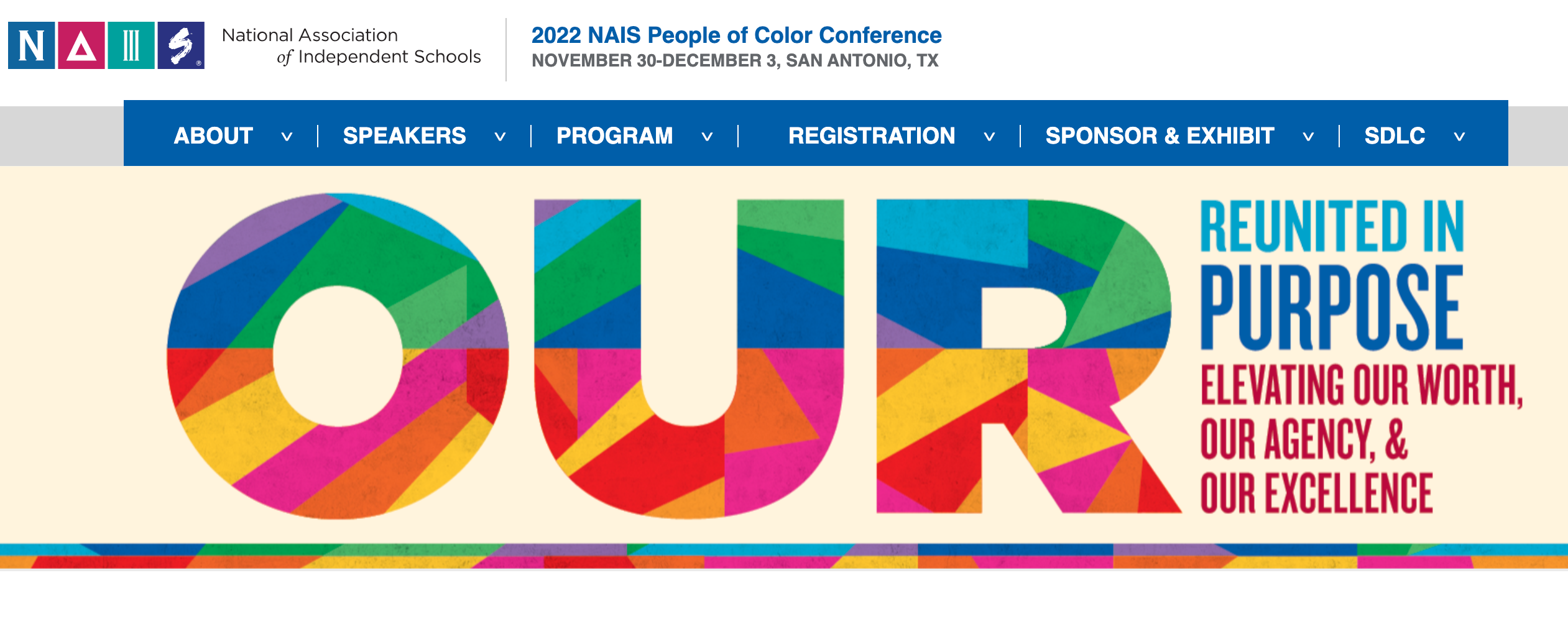I wrote a post in April of 2021 about AWARE, the Alliance of White Anti-Racist Educators, a group I co-facilitate (Hi, KF!) at my school. I'm circling back to that idea in this post because I've been thinking more about the importance of affinity spaces for people of all races.
In late-November and early-December of 2022, I was lucky enough to attend the National Association of Independent Schools' People of Color Conference, known as PoCC. The conference's theme was "Reunited in Purpose: Elevating Our Worth, Our Agency, and Our Excellence." The event runs on two tracks, the Student Diversity Leadership Conference (SDLC) and the adult conference. The groups come together to hear speeches by amazing thinkers, this year including my three favorites: Nikki Giovanni, J. Luke Wood, and Mariana Atencio. Additionally, students and educators attend workshops on all kinds of topics related to race, equity, justice, and inclusion at independent schools.
In addition to all of those offerings, each of the three days of the conference, attendees also meet in affinity spaces. I attended the white-identifying group, which focused on helping white educators better understand the experience of many BIPOC students and faculty at our schools. The leaders of these sessions encouraged us to consider three separate paths for our DEIJ work:
- alone (educating ourselves and reflecting on our thoughts and practices)
- affinity (planning with other white people who are also hoping to improve the experiences of our BIPOC colleagues and students)
- alliance (collaborating with our BIPOC educators and scholars)
Obviously, this list of needs isn't the same for white people and for BIPOC in schools. I hope it's clear that it's not the job of the oppressed and discriminated against to fight for their humanity; it's the job of those in power to further the work of equity, inclusion, and justice.
That said, white people (myself included) often need to figure out more about themselves in order to further our understanding of and ability to work toward justice. We can't do that well if we're causing more harm/trauma as we muddle through/share our unformed thoughts in the presence of the people we're trying not to hurt. And our BIPOC student and colleagues deserve to enjoy spaces where they can celebrate themselves without outsiders who don't understand what they've endured.
Apparently a white person at the conference submitted a rating/comment about the affinity work that it sounded as though the other affinity groups were having more fun than we were. (We could hear another group through the partition.) I would argue that of course the other groups at a People of Color Conference SHOULD be having more fun than the white educators who attended. We were invited as guests and allies, people who need to do the work to dismantle a system that benefits us and harms others. While the efforts can be uplifting, they shouldn't be fun. We have serious work to do.
As you've just read, my thoughts aren't fully formed yet. I'd love to read your ideas in the comments.
